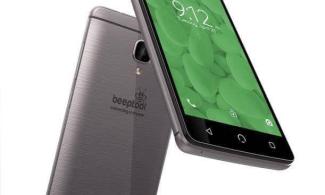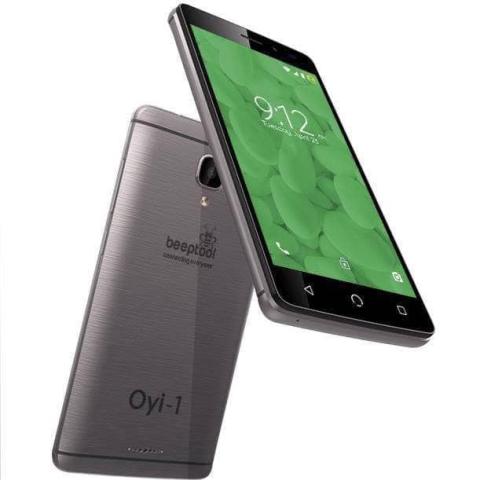
"If you earn more than N15,000 per month, then you’re not qualified to get the phone at N1,000. However, people who earn more than N15,000 can get the phone at the normal market price," John Enoh, Chief Executive Officer of Beeptool Communications and Integrated Services Ltd, said.

Oyi-1, a smartphone running on Android operating system, has been unveiled.
The smartphone, which targets low income earners, is the brainchild of Beeptool Communications and Integrated Services Ltd.
Speaking on the inspiration for the mobile device, John Enoh, Chief Executive Officer of Beeptool Communications and Integrated Services Ltd, said himself alongside two others — Michael Ige, the Chief Operations Officer and Mayowa Ihinmikaiye, in charge of the company's Financial Technology, came up with the idea of Beeptool Communications and Integrated Services Ltd to support efforts to alleviate poverty in Africa., using digital technology.
According to the Enoh, the smartphone is aimed as making digital services such as financial inclusion, telehealthcare, smart farming and communications affordable and accessible to the lower class.
The phone was unveiled in Abuja on November 30, 2018.
Explaining the peciliarities of the phone, Enoh said: "The phone is actually for the end user who is qualified or eligible for the affordable smartphone which is actually Africa’s first. It is a crowd-funded smartphone and pre-financed by donor agencies, organisations and individuals who want to really help to alleviate poverty. The cost of the phone is really high if we decide to go by the market price, but somebody somewhere crashed the price using our technology.
"So, for the end user who is qualified — and these end users are people who must not earn more than N15,000 per month. We are looking at people who are not able to afford $2 per day. If you earn more than N15,000 per month, then you’re not qualified to get the phone at N1,000. However, people who earn more than N15,000 can get the phone at the normal market price which is N25,000. Our target for this is not the people who can afford smartphones. This is really for those who cannot afford smartphones; those who are in rural areas. In Nigeria for instance, we have about 40 million Nigerians in that range."
Highlighting the benefits of Oyi-1, he said: "The Oyi-1 smartphone is an affordable smartphone and it is a smartphone as a service not a smartphone as a device. It’s as a service to the end user and we provided applications such as financial applications so that they’ll be able to have a small daily contribution platform and they’ll be able to request micro loans from the Ministry of Agriculture; they’ll be able to pay little money and still be connected to the financial economy."
There are also applications for health challenges as well as farmers.
He continued: "Apart from that, we also have the M-health application. This is basically for people in the rural areas that are not able to go to hospital, so that they’ll be able to reach a group of doctors, call them up and access medical care remotely.
"Apart from that, for farmers, we have an app called M-farm. M-farm is an application that connects rural farmers to the city where they can check up the prizes of agricultural produce like yams for instance in Benue State and the cost of the same yams in a city like Lagos. It maps the producer of the yam and the buyer in the city. Those are the things we’ve built into it to keep these people were targeting busy, to create prosperity for them. Not only giving them money, but a tool in their hands that they can use to make money.
"So it’s not just a smartphone for making calls. You can make calls with it quite alright, you can do any other thing like you do with any normal smartphone, but that’s not the target. There are smartphones everywhere but Oyi-1 is a smartphone as a service, one of its kind in Africa and in the world in general.
"What makes our phone very unique is that it comes with a dual SIM capacity and it uses dual connectivity; dual connectivity in the sense that it uses the traditional GSM service providers, but above that we have connected our device and applications to a nano satellite, which is the world’s first nano satellite that will also bring connectivity to those rural areas to enable them use our phones, not by using codes like USSD or sending SMS, but just pressing a button to carry out transactions."